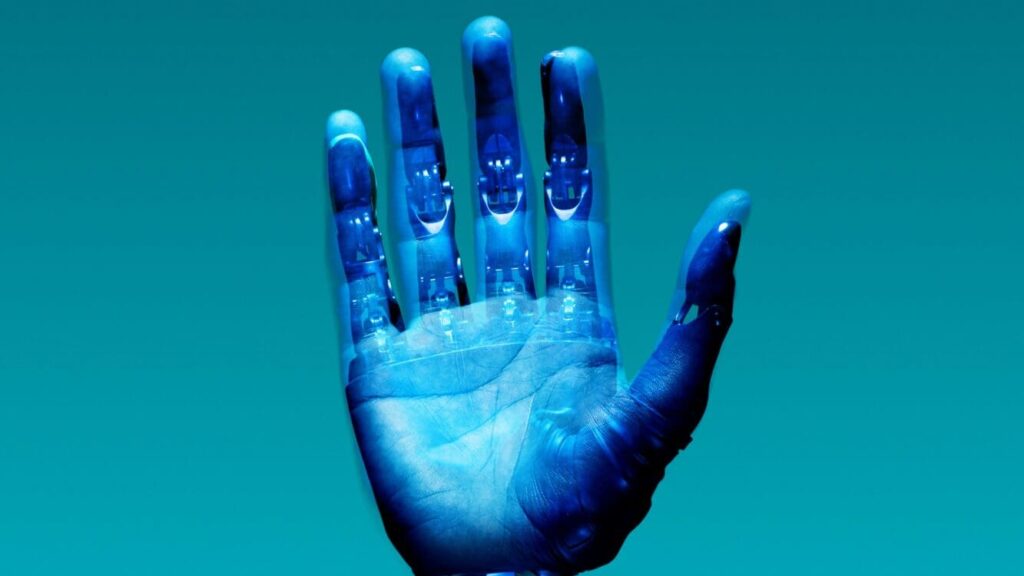
Photo by ThisisEngineering on Unsplash
Writer and Orthodox Christian Paul Kingsnorth spoke on May 24 in Estonia’s capital at the Tallinn International Aldous Huxley Centre’s inaugural conference, “When the Unthinkable Happens.”
Reading calmly from a piece of paper—with no slides—in clear rebellion against today’s digital hegemony, Kingsnorth told a room of international writers, critics, and academics, “You are living in what I have come to call ‘The Machine.’” In this brave new world, we are witnessing the “triumph of the mechanical over the natural, the planned over the organic, the centralized over the local, the system over the individual and the community. This is the tale of our time.”
Kingsnorth argued that, since the Industrial Revolution, the Machine has been enveloping man and disenchanting his world. Now the process is nearly complete. The old world is dying, if it’s not dead already, “And the one that is manifesting to replace it is a kind of left-brain paradise. It’s all straight lines and concrete car parks … there’s no arguing with it, because it makes perfect rational sense.”
Look no further than the consolidation of global corporate and ideological power. Kingsnorth explains that, “Ever-tightening restrictions on certain types of speech and assembly, smartphone-enabled health passports, track-and-trace apps, state-issued digital currencies, cash-free economies, widespread surveillance by facial-recognition camera, access points controlled by eyeball or fingerprint scan, artificial intelligence: all of these are here already.”
The Machine severs man from nature—from the Earth and the present—as well as from God. “In their stead,” Kingsnorth said, “we are offered an anti-culture, an endless consumer present: planned, monitored, controlled, smart, borderless, profitable, soul-dead, increasingly detached from messy reality, directed by who-even-knows, mediated through monitored screens.”
“Aiming toward utopia,” he observed, we find ourselves “dipping towards hell instead.” This fall is entirely volitional and idolatrous. Kingsnorth thinks the “ultimate endgame … is the replacement of nature with technology, the rebuilding of the world in purely human shape … to fulfill the most ancient human dream, which is to become gods.”
The age of the Machine is characterized by “silicon theology,” which sacrifices man’s humanity on the altar of progress. Modern man enjoys stability (via population control), comfort (delivered instantaneously via ever-present screens), and pleasure (of an increasingly sexualized, perverse nature). We have surrendered the sacred—the forests, the “thrumming temples,” and “the conviviality”—in exchange for the stimulating but soul-crushing profane.
On the societal level, it seems there is no turning back: Kingsnorth argues that, “The total system can’t be overthrown, because like the hydra, it has heads everywhere.” If his diagnosis is correct and there is indeed no turning back, what can be done? How might the concerned humanist navigate his brave new world? Kingsnorth responds to such inquiries with a question: “Where is the escape hatch?”
“If the Brave New World points us towards the emerging total system, it also points us towards the alternative,” he said, emphasizing that there is still cause for hope. “The alternative has always been the same.” In practice, it is neither grand nor sexy, but it is effective and available to all:
It’s living within limits, refusing to consume for The Machine, refusing to give the total system what it wants. Planting your feet on the ground, living modestly, refusing technology that will enslave you in the name of freedom, building a life in which you can see the stars and taste the air. It’s to live on the margins in your home or in your heart. It is to scatter the pattern. It is to speak truth and try and live it. Set your boundaries and refuse to step over them. It is to be a conscientious objector to The Machine.
Aldous Huxley might have described it best in Brave New World, when he wrote his now infamous exchange between the Savage and the World Controller of Western Europe. “I don’t want comfort,” the Savage tells Mustapha Mond. “I want God, I want poetry, I want real danger, I want freedom, I want goodness, I want sin.” Rejecting comfort and control, the Savage claims the right to be unhappy—and, in so doing, to remain fully human. Kingsnorth’s lecture reminded his audience that we have a similar choice: to serve The Machine or to object, to speak truth, and to live grounded in the Earth.
Watch Kingsnorth’s full presentation, and the rest of the conference, here.